Norwegian Americans love to say uff da as a badge of Norwegian pride. But here’s the story of what the expression actually means in Norway today.
If you're of Norwegian descent, you have almost certainly heard someone say uff da, and quite possibly also said it yourself. But did you know the expression is used very differently in North America and in Norway?
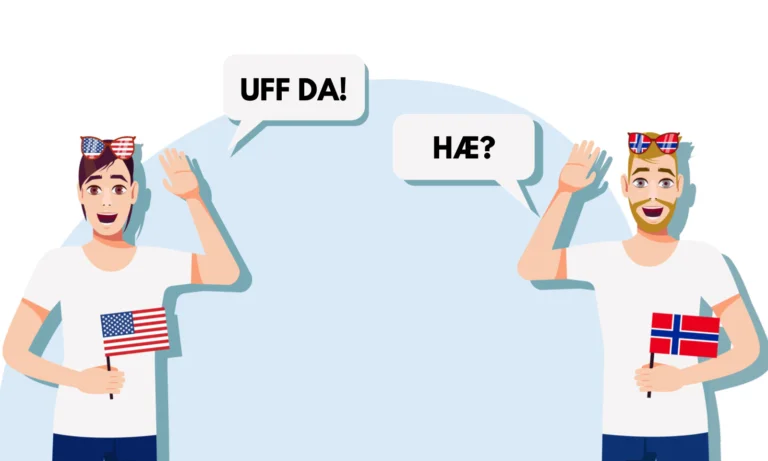
Let us clear things up! In this article, I’ll explore the different meanings of the saying, how its used by Norwegians and Norwegian Americans—and why none of this really matters anyway!
Origins of the Norwegian expression
Uff da is an expression composed of two words. “Uff” is an onomatopoeia – that's a word that represents a sound. Just like “bang” or “woof” or “pow”. The word uff is meant to represent a sigh.
Da is (roughly) the Norwegian equivalent of “then”. So, for example, “kom igjen da!” translates as “Come on, then!”. Of course, as an expression, the two words take a meaning that goes beyond their separate definitions.
Uff da in the United States
In North America, uff da is used as an all-round exclamation or a kind of very mild curse. We’ve scoured the internet for evidence and found all manner of curiosities.
It can express a whole gamut of emotions from surprise to dismay, via exhaustion and astonishment.
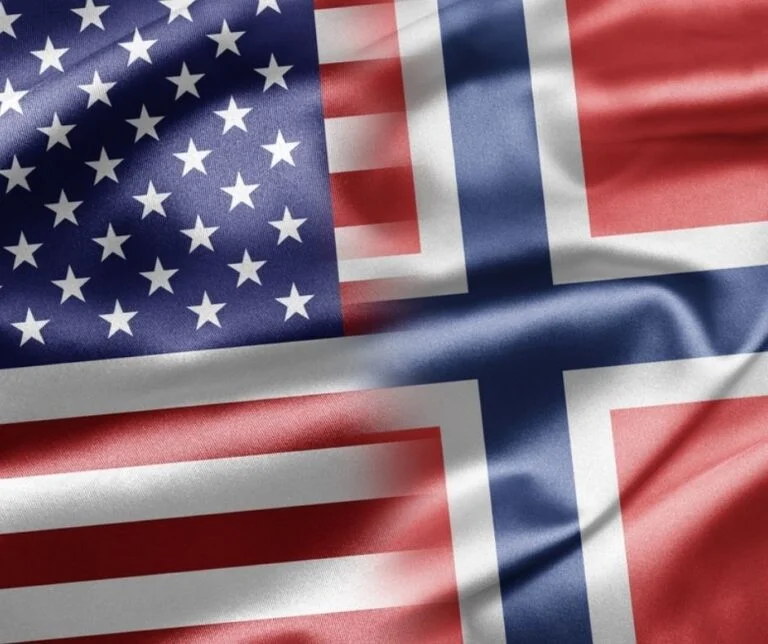
For example, it seems that Minnesotans will say uff da when they lift something that's heavier than expected, when they go outside and realise the temperature is very cold indeed, or when they kick their shoes off and collapse on the sofa after a long day at work.
A marker of Norwegian American cultural identity
In North America, using an expression like uff da marks you as having a connection with Norwegian heritage.
That might be unintentional. Maybe the expression is just part of your vocabulary, and always has been. Or it may be deliberate: you use the word because you want to show people you have a connection to Norway.
The latter is seen quite clearly in the use of the expression to name businesses, social clubs, restaurants or other organisations. There is Uff-Da Airport, several Uffda festivals and many Uffda roads.
Indeed, uff da has an almost legendary status in some parts of the United States and Canada. It is worn with pride (sometimes literally) by people of Norwegian heritage.
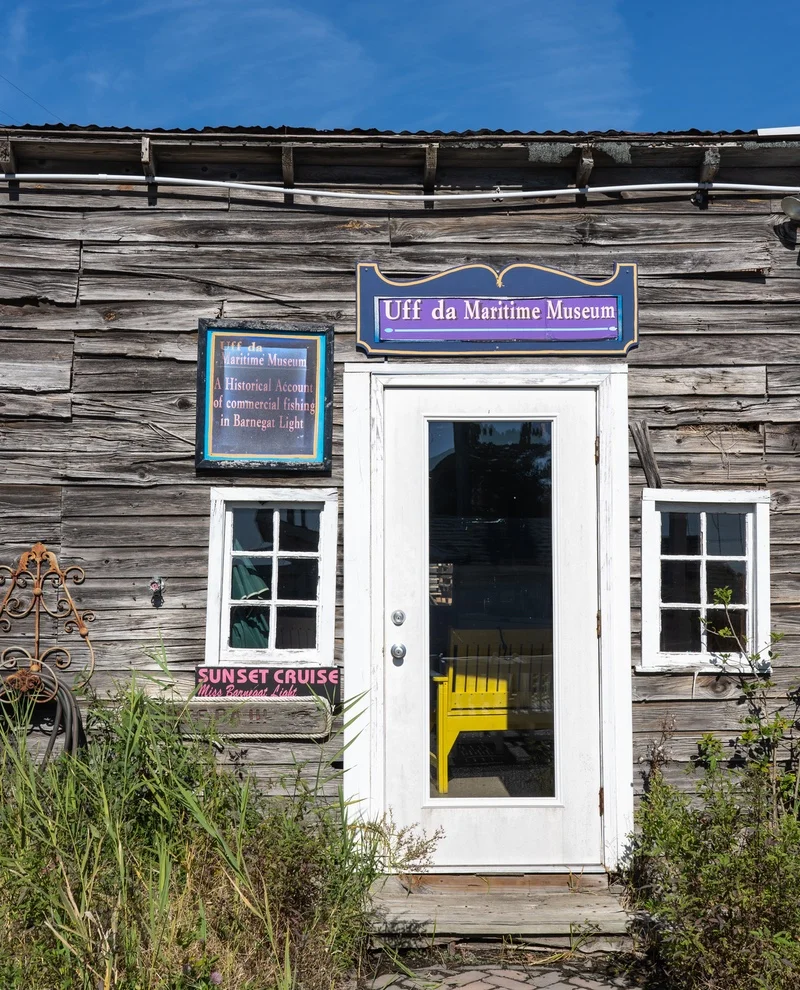
It is not only an expression but a badge of honour of sorts, claiming a small part of one's ancestors' culture. For people who are in the know, it signals that connection very clearly.
Perhaps that’s why so many Norwegian Americans comment on Life in Norway’s Facebook posts with uff da!—something a native Norwegian would never do.
Uff da in Norway
Here's a bit of good news: Uff da is a genuine Norwegian expression that is used in Norway to this day! There is a difference though, which I will attempt to explain.
First, it has to be said that uff da is not a very common expression in Norwegian. Everyone in Norway knows what it means, but most people will use it only sporadically, if at all – and certainly not every day.
Another difference is in the range of situations in which uff da is the appropriate thing to say. This range is much narrower in Norwegian than in English. In fact, about 80% of the time (this is a very crude and non-scientific estimation by yours truly), uff da is used in Norway to console a child who inflicted themselves a minor injury.
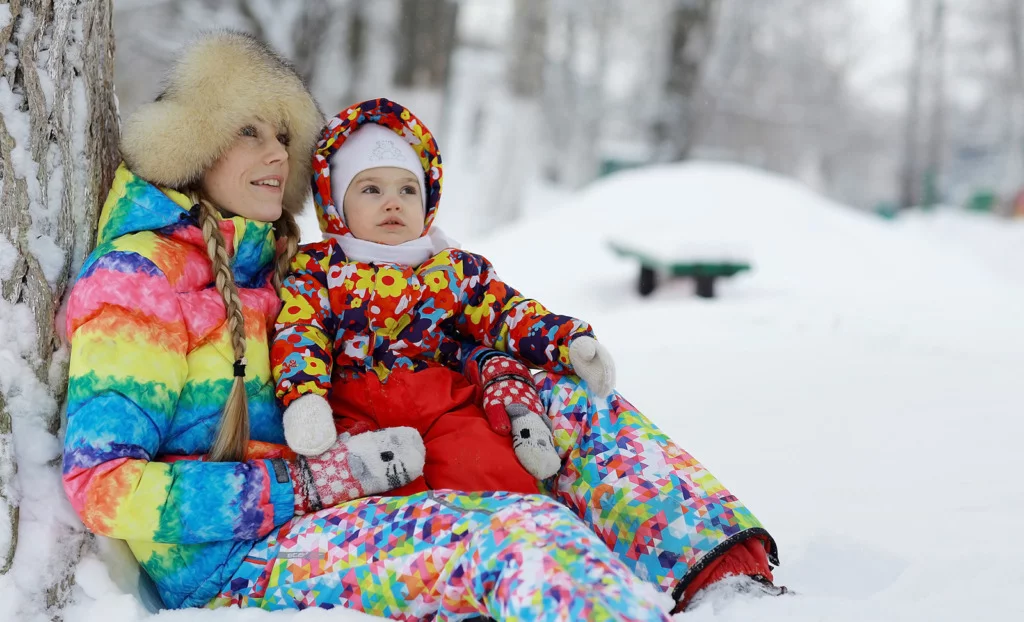
The point of uff da in Norwegian is to express compassion for something unfortunate that happened – but not too unfortunate.
You can say uff da when a child comes to you crying because they scraped their knee, but not if they come to you crying because one of their relatives died. This sort of equates to the use of “aww, there there” by parents in English!
If you use uff da in a situation that is too serious, it will sound like you're minimising the gravity of that situation. In fact, that is probably why it's so commonly used to console children with minor scrapes and bumps.
It's an expression that says “that sucks, but it's not that bad”. Because of that added bit of meaning, uff da can sound a little condescending if used at the wrong time.
If you want to express compassion without sounding like you're trying to minimise the problem, you can simply say “uff”, without the “da”.
It's used only in conversations
Because it's not used as a minor curse word in Norwegian, uff da really only makes sense when used in a conversation with another person. This makes sense given that it's meant to express compassion.

Of course some people talk to themselves and they can use any expression they want – it could be argued that they are, in fact, holding a conversation. But the point is: using uff da because you're exhausted, surprised or shocked (in the same way you would use another minor swear) would just be weird in Norwegian.
The pronunciation
Another small but very noticeable difference in use of the expression between Norway and the United States is in the way it's pronounced.
The Norwegian “u” is notoriously difficult for native English speakers to pronounce, and it is likely to be replaced with something sounding more like an “oo” sound. But the good news is: even Norwegians sometimes pronounce it with a “oo” sound, depending on their dialect.
How did the expression cross the Atlantic?
Many Norwegians left Norway in the 19th century, in search of a better life in the vast expanses of the American Midwest. Because they wanted their children to integrate, they often tried to speak only English to them.
Despite this focus in English, uff da is one of those Norwegian expressions that still made it through. Perhaps the children heard it and remembered it precisely because it's so commonly used to console them. Either way, it came to represent a connection to a Norwegian past.
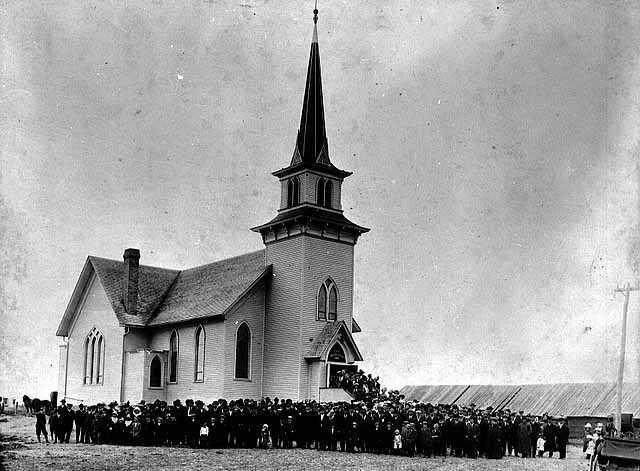
So who's right?
We've established that uff da doesn't mean the same thing on either side of the Atlantic. So who's right and who's wrong? Well… everyone is right.
Linguistically speaking, if a large group of people (say, Americans in the Midwest) use a word or expression in a certain way and understand each other when they do, they cannot be wrong.
This remains true even if said word or expression has a different meaning than it did originally. Languages evolve, expressions change, words disappear and reappear through time.
Regardless of the meaning you assign to it, uff da is undeniably a tangible connection people of Norwegian descent have with their past. As such, it's no wonder the expression is as cherished as it is.
So, should you keep on saying uff da as much as you like? Go right ahead! Just don’t be surprised if you get confused looks should you use the expression in Norway…


i have often wondered where it came from and why ,i am of norweigian folks and proud of it
It’s wild because growing up in Minnesota I had no idea this was a Norwegian word! I will say though I don’t know anyone that thinks it means a swear word haha. It’s more like a sigh and it is usually said when we hear something bad happened. Like someone tells you they got in a car accident, “uff da! Are you okay?” Its too light hearted to be a swear word.
That seems similar to how I hear it used in Stavanger (car accident was actually one example I thought of while reading) and I hear it quite frequently (possibly even daily.) It’s probably a regional thing in Norway and in America, it’s quite fascinating.
Uff-da Airport seems purely American though, now I kinda want to visit it!
A friend once bought an old school bus and named it “Uff da”. He displayed the name proudly in the destination slot above the windshield.
What about “fee da”? I used to hear my great grandmother say that like a word of disgust.
I’m not Norwegian but was living in the Kristiansand area for 9 years and they say a lot of “fy faen” as a curse. Sometimes they just say “faen” or just “fy”, the latter would sound like “fee”. It’s easily possible there are other variations on the curse. 🙂
From Wikipedia: “Faen is a contraction of the Norwegian word fanden, which means “the devil”. Often used as an interjection. Can be translated to “fuck”…”
And from the Urban Dictionary: “Fy faen – Norwegian phrase popularized by the teen-drama “Skam”. A rough translation into English would be “Holy shit” or “Holy fuck”.”
It’s probably “Fy, da!” – which is used to express disgust or disbelief.
(Source: I’m norwegian)
I grew up listening to uff da and Fy da. Also uff da Meg. What does that mean?
I say that one also. My Gram was 100% Norwegian and I learned them from her. I use feeda for something nasty, for instance stepping in dog poo. Maybe it’s just how I interpret it. 😁
That word would be fy, Norwegian y is difficult for an American to pronounce. You would say fy to a child who did something bad. It means shame on you. You’d say fy da when you are disgusted by something.
Yes, one of my first memories as a small child was sitting on the harbour wall throwing pebbles into the fjord and one of the old aunts hissing fy at me
My grandmother, mother and aunts also said “fee da” and it expressed disgust or in reply to an inconsequential matter. Maybe that interpretation is wrong and if it is, I would like to know.
I say that one also. My Gram was 100% Norwegian and I learned them from her. I use feeda for something nasty, for instance stepping in dog poo. Maybe it’s just how I interpret it. 😁
Uff da fee da is when something isn’t going very well… ish-ta fee da is something really disgusting… haha.
In Stavanger we often hear people say ” oisann” instead of “uffda”
Now that opens up a can of worms!!
I grew up with oisann too….more of a lighthearted surprise. A cute word 😃
In Hungary people also use “uff”, and it has kind of the same meaning; although it’s not used to condole someone, it’s rather a reaction when something unexpected and negative or rough happens.
If your dog leaves a mess on the floor, “Uff Da”
When you have to clean it up, “Fee Da”
Now that makes perfect sense. Thank you!
My mother-in-law, 1st generation born in the US, used both Uff-da, and fee-da, Feeda was real disgust! This was some years ago.
First saw the words ‘uff da’ on a license plate from Kansas – this was in New Brunswick, Canada! – I asked the car owner what it meant and he said it is a Nowegian expression similar to the Yiddish expression ‘oy vey’ – kind of like ‘what a nuisance’!
I first visited Norway in 1972 and last visited in 2017 -hope to get back one more time if the borders open up soon
Seen in a Norwegian gift shop: an illustration of an uff da: the handle of a coffee mug set inside the cup rather than outside…
The Norwegian use, of uff da, can be likened to oops a daisy in British English.
«Uff» was also brought to England/Scotland by the Vikings around year 800-1200. The word «uffs dråper» is the origin of the expression «eavesdrop», and «an eave», « torvstokk» in Norwegian, also comes from «uff». Raindrops from the roof of a loghouse, made you clinch to the wall..
Source: Oxford English Dicitionary. And I am Norwegian.
By the way; I say «uff da» quite often.
Years ago I had a book about Norwegian American culture which talked about fy da and ish da, in addition to uff da. It claimed fy da was sort of a “shame on you” expression. Ish da was the equivalent of “gross”, used when you stepped in a dog mess or something equally nasty. (Of course that particular book is not to be found. It will most likely turn up. Some day. Maybe.)
Having a Norwegian great-great grandfather (Torger Torgerson) makes these tidbits of information extra interesting.
This is my understanding of ish/ish da as well. I’m from Minnesota but have moved to New Mexico, and now a lot of my kids’ New Mexican friends say ish/ish da because they’ve learned it from me. Their descendants are going to be very confused about why they’re New Mexican but have somehow inherited this one Norwegian Minnesotan phrase
My wife’s mother is Norwegian and she was unfamiliar with the American use of “Uff da” as a insult or in a chastising manner. Her explanation of the way the phrase “Uff da” is used in Norge left me even more confused. Rather she used Fy’da to scold or chastise.
“Uff da” was and still is an expression used by a grandmother comforting a child. I am not a grandmother, so I don’t use it.
I grew up saying “Uff da Meida” ok North Dakota does anyone know what the last part could mean?
Growing up that was the one Norwegian word I knew. My paternal Grandparents were 100% Norwegian. I only saw them when we would visit their farm in Illinois each summer (I grew up in Texas). My grandmother even painted “uf-da” on rocks for each of her grandchildren. I still have mine-it’s one of my most prized possessions!
This article is way too over the top. I grew up with a Norwegian grandfather born and raised in Norway and got citizenship into America. He used this uff-da often as did my German grandfather. What I noticed it was usually as a sigh of relief when they were relaxing/ taking a load off after hard work, or something maybe seemed a little confusing or stressful grabbing there forehead! I don’t know that’s what I experienced in America. I use it to this day because I picked up on it but it’s not a trend it just comes naturally growing up around it. But you got this Norwegian only go getter Yahoo talking about Norway well I don’t live in Norway so who gives a rats ass….perfect moment for uff-da after reading this making it weird when it isn’t.
Norwegian here. We never use “uff da” as a sigh of relief. This article was spot on describing how the expression is used in a Norwegian context.
I wonder if the usage morphed over time in Norway while getting set in stone here in the US. My grandmother brought it with her from Norway in 1916 and always used it in the US form.
Australian here, my wife and kids are of Norwegian descent, so this is my connection, however growing up in this part of Australia has shown me, in retrospect, the Norwegian influence is far reaching, my father would refer to Thunder as Thor and Loki playing billiards or moving furniture.
and we use Uff (more like Oof though) in a similar manner to the Minnesotans mentioned in the article. I recall many times over my life being exhausted and sore and saying “Oof, Crickey” or Oof, Blimey”
So for me it is good to know we basically used it as originally intended even without the ‘da’
as for using Uff Da, as a kid in the 1970’s, my parents would use Oof, to lead into alternative to ‘da’ when we would hurt ourselves. though it was also changed with ooh, and ow.
So again good for me to know that was used basically correct.
my son is learning Norwegian so I will add Uff Da to his vocabulary 🙂
my personal heritage is Welsh/Irish/Cornish/Scottish/Danish as we could trace through our ancestry, though my Uncle and I are the only ones that acknowledge the Danish connection. while not really relevant I am curious to know if the Danes use “uff da” or a variant.
I landed here because I found a shirt that said “And then God said “Uff da” And he created Norwegians”
I had to find out what it means because my mom spend a lot of time in Norway with my daughter who’s very sick. My best friend (Norwegian) adopted her so she could get the best chance at survival through their healthcare system and educational system. I wanted to get her the shirt but now I’m even more confused.
My grandparents on both my mother and father’s side came to Canada from Norway in the early 1900’s, and my parents’ first language was Norwegian as a result.
Uff da, ( a mild exhortation) fy da, (things are getting seriously bad) and ish da (something is icky) were all a part of our vernacular growing up, not because of our wanting to signal our heritage but because my siblings and I thought that it was part of the English language and that everybody used it.